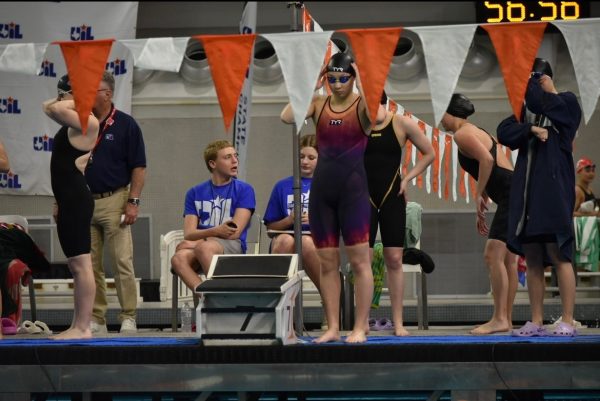Buses Now Require IDs to Ride
As of Nov. 3, Allen High School implemented a new policy requiring students’ IDs to be visible in order to ride school buses.
According to Director of Transportation Carl Cater, for the first two weeks the policy was in its “warning phase,” meaning students without IDs were asked to go to their house offices after they got to school to receive a new one. After this phase, administrators will be called to buses to identify students without IDs.
“We’re not going to deny you a ride, but we are going to call an administrator to the bus,” Cater said.
However, sophomore Bryce Madrid and junior Danielle Guzman both reported students on their buses were refused transportation during the warning phase.
“They weren’t allowed to get on,” Guzman said. “They had to have their mom drive them to school.”
Cater said he had no knowledge of this incident.
“No students should ever be denied a ride,” Guzman said.
One rumor spread around the school was that the new policy was started because too many students were riding each other’s buses.
“It’s really not so much based on that, but it’s based on a security thing,” Cater said. “We just don’t know who’s getting on our buses.”
Some students see it as a matter of control.
“It’s more beneficial to the adults, knowing that there’s students on the buses,” Madrid said.
In addition to safety concerns, overcrowding was a contributing cause for the policy.
“We can also measure how many kids are eligible for this particular bus, and it’s [going to] stop us from having to put secondary buses on the same route,” Cater said.
With differing student opinions, many understand the ideology behind ID requirements.
“Really overall they’re just trying to keep everybody safe,” Guzman said. “I don’t disagree with it.”
Only three weeks into the implementation of the new policy, administrators expect several improvements as it progresses.
“We’re [going to] be able to identify who our students are, we expect to become a. . .safer transportation system, and hopefully we’ll become more economical in terms of not overcrowding,” Cater said.
Words: 350










